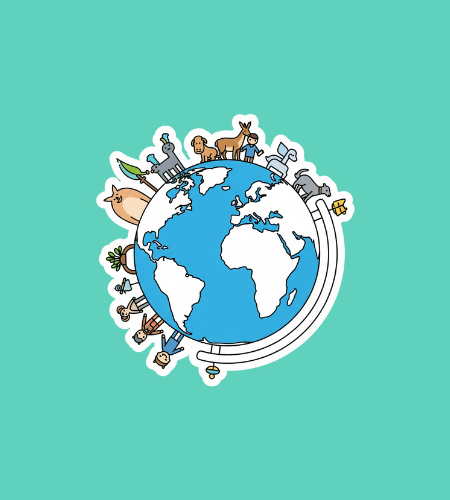World Zoonoses Day, celebrated on July 6, honors the historic first rabies vaccination administered by Louis Pasteur in 1885 and raises global awareness of zoonotic diseases—those transmitted between animals and humans—recognizing their impact on public health and the importance of prevention.
History of World Zoonoses Day
On July 6, 1885, Professor Louis Pasteur successfully administered the first rabies vaccine to a young boy bitten by a rabid dog—an event that marked a groundbreaking moment in medical history and prompted global efforts to combat zoonotic diseases. This achievement laid the foundation for a deeper scientific understanding of how pathogens can pass between animals and humans.
In recognition of the ongoing threat posed by zoonoses—especially as emerging diseases like Ebola, SARS, and COVID-19 originate from animal sources—the day was more widely promoted by public health organizations and marked globally with the mission “One World, One Health,” emphasizing collaboration across human, animal, and environmental sectors. 1
Why is World Zoonoses Day important?
It reminds us that our health is deeply tied to the world around us. When we disrupt wildlife habitats or raise livestock unsafely, we open the door to diseases spilling into humans. Learning that approximately 60% of infectious diseases and up to 75% of newly emerging diseases are zoonotic is both alarming and motivating—it shows that prevention starts with responsible stewardship of nature.
It also promotes a united approach. World Zoonoses Day supports the One Health framework—a partnership among health sectors that enhances detection, response, and prevention of outbreaks by recognizing the interconnection of people, animals, and the environment. When communities and countries work together, we’re better prepared to stop threats before they spread.
- It commemorates Pasteur’s first rabies vaccination and the dawn of zoonotic disease control.
- It raises awareness about how human actions—like wildlife trade, intensive farming, and habitat loss—can trigger outbreaks.
- It underlines the fact that most new infectious diseases originate from animals.
- It serves as a reminder that global vigilance and coordinated action are essential to prevent future pandemics.
- It promotes the One Health approach, encouraging collaboration among human, animal, and environmental health agencies.
How to Observe World Zoonoses Day
July 6 is a moment to learn and act. Start by educating yourself and your community about zoonotic risks—understand how everyday choices, such as pet care, food sourcing, and wildlife interactions, influence disease transmission. Sharing informative articles or attending webinars can spark useful conversations at home and in public spaces.
You can also support local and global efforts on One Health issues. Maybe volunteer at or donate to animal vaccination campaigns, wildlife conservation, or public health education. If you’re in healthcare or policy, this is a good day to advocate for programs that promote cross-sector cooperation and stronger disease surveillance.
- Learn about zoonotic diseases and their prevention through trusted sources.
- Support local wildlife preservation and ecosystem health initiatives.
- Ensure pets and livestock are properly vaccinated and treated.
- Share accurate, science-based information on social media to raise awareness.
- Advocate for or donate to One Health educational or surveillance programs.
World Zoonoses Day Dates Table
| Year | Date | Day |
|---|---|---|
| 2025 | July 6 | Sunday |
| 2026 | July 6 | Monday |
| 2027 | July 6 | Tuesday |
| 2028 | July 6 | Thursday |
| 2029 | July 6 | Friday |
Subscribe to our newsletter and never miss a holiday again!

